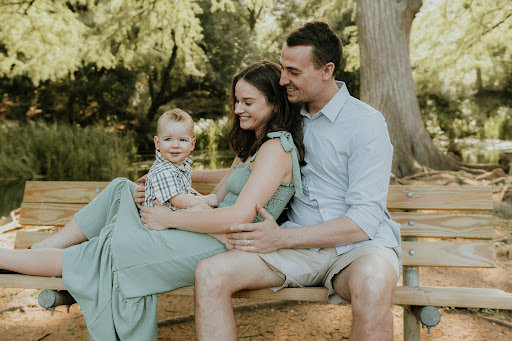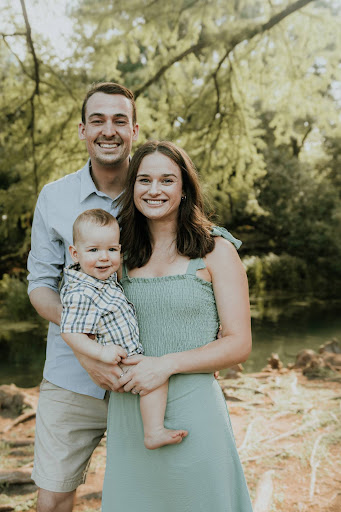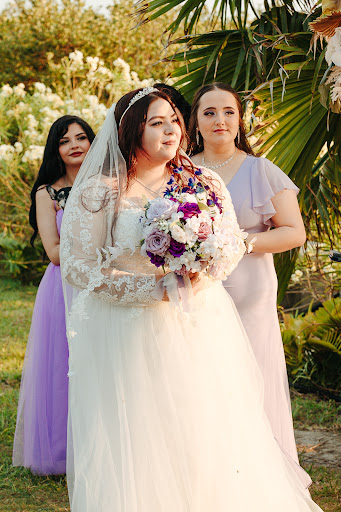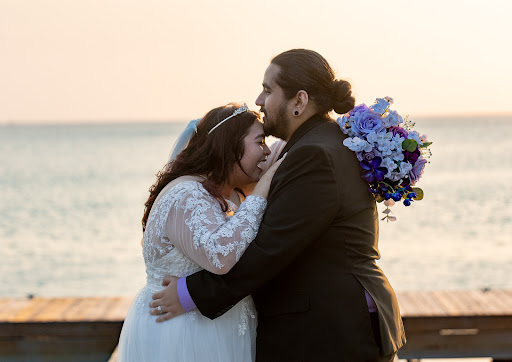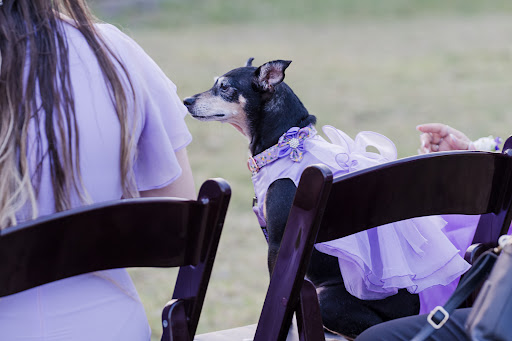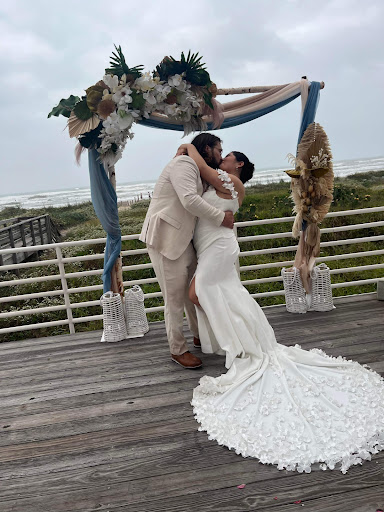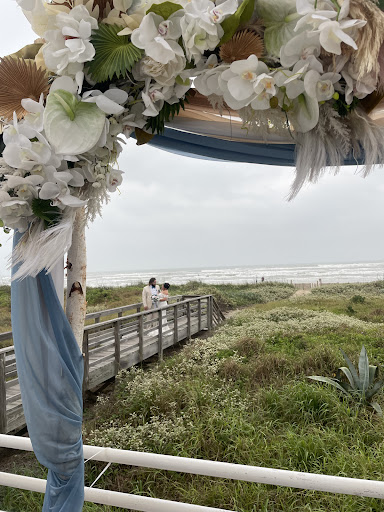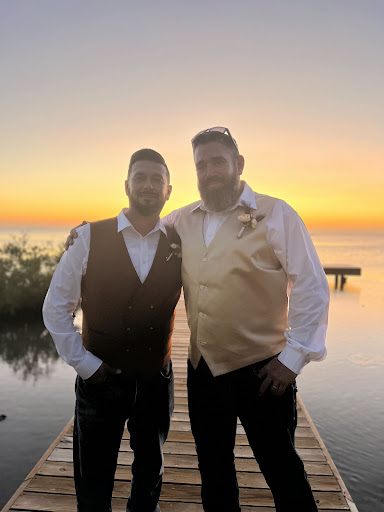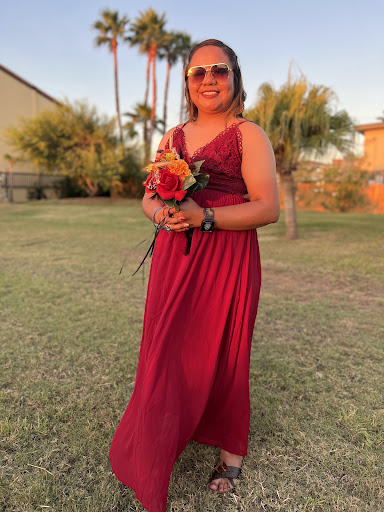How to Get a Texas Marriage License (Guide for Popular Counties)
By Weddings By Wendi – Your Texas Hill Country wedding planner
With this authoritative guide, you’ll get step-by-step instructions to obtain a Texas marriage license in any county, including eligibility, required documents, clerk office contacts, fees, the 72-hour waiting period and license expiration. You’ll learn how missing IDs or fees can delay or prevent your license, when you must appear in person, and how to find county-specific details so you can secure your license confidently and on time.
Key Takeaways:
- Step-by-step: Apply for a Texas marriage license at your county clerk — complete the application (many counties offer online start), bring valid photo ID, proof of age/SSN or affidavit, pay the fee, and both parties typically must appear to sign.
- Eligibility: Meet Texas age and legal requirements; minors may need parental consent or a court order and previously married applicants must provide final divorce or death decrees.
- Required documents: Government photo ID (driver’s license or passport), proof of age/birth certificate if requested, Social Security number or affidavit, and any prior marriage termination documents.
- Waiting period & expiration: A 72-hour waiting period applies in most cases; waiver available after completing an approved premarital education course; Texas marriage licenses generally expire 90 days after issuance.
- County marriage license variations: Fees, office hours, and procedures differ by county — check the county clerk for specific county marriage license details for Travis, Hays, Comal, Williamson, Bexar, Dallas, and others (contact clerk for address, phone, website).
- After the ceremony: The officiant must sign and return the completed license to the issuing county clerk to record the marriage; order certified copies from the clerk as needed.
- Assistance & resources: Weddings By Wendi can help with the Texas marriage license process and day-of logistics — see /day-of-wedding-coordination/, /wedding-planning/, /wedding-photography/ and contact Weddings By Wendi for support.
Understanding the Texas Marriage License
Definition of a Texas Marriage License
You get a Texas marriage license from the county clerk as the legal authorization for your marriage; it’s the document the officiant signs and returns to the clerk to create a public record. Issued by the county clerk, the license confirms identities, ages, and eligibility, and without it your ceremony won’t produce a state-recognized marriage certificate.
Importance of a Marriage License for Weddings
A marriage license turns your ceremony into a legal marriage, unlocking benefits like tax filing, Social Security, insurance, and name changes. If the signed license is not filed with the clerk within 30 days, you could face administrative hurdles obtaining a certified copy or proving marital status.
In practice, couples often run into problems when an officiant forgets to return the signed license or when required IDs are missing at the ceremony. For example, a planner I worked with had to contact the Bexar County Clerk to locate a lost license after a courthouse wedding; having the clerk’s case number and the license issuance date sped resolution. You should verify filing timelines with your specific county clerk and confirm the officiant will mail or hand-deliver the signed license promptly to avoid delays in changing names, updating benefits, or handling immigration paperwork.
Overview of the Marriage License Process in Texas
The basic steps: apply in person at the county clerk (many counties let you start online), present valid ID and any required documents, pay the fee, observe the standard 72-hour waiting period unless waived, and use the license within its 90-day validity window. Both parties generally must appear to sign the application.
Many counties provide an online pre-application to shorten your clerk visit—Travis, Williamson, and Dallas often list that option on their websites—yet both of you will still need to appear with photo ID. Military personnel on active duty commonly qualify for the 72-hour waiting-period exception, and a judge can grant a waiver in some counties for urgent situations. Make a checklist (IDs, Social Security numbers if available, previous divorce decree dates) and confirm your county’s exact requirements and fee so you avoid last-minute surprises at the clerk’s office.
Eligibility Requirements for a Texas Marriage License
Age Requirements
You must be 18 or older to get a Texas marriage license without added approvals. If you’re 16 or 17, Texas allows marriage only with parental consent and a court order; marriages under 16 are not permitted. Bring a valid photo ID and a certified birth certificate or similar proof of age—counties enforce age rules strictly and missing documentation will delay your application.
Residency Requirements
Texas does not require you to be a resident of the county or the state to apply—you can apply in any Texas county and the license is valid statewide. Expect to appear in person at the county clerk’s office; some counties let you start an online application, but both applicants usually must sign in person before the license is issued.
For example, if you live in Dallas but are marrying in Travis County, you may apply in either county; many couples choose the clerk near the wedding venue for convenience. Fees, hours, and online pre-application options vary by county—fees can differ by $5–$25—so check the specific county clerk website before you go.
Previous Marriages and Divorce Decrees
If you were previously married, you must disclose the prior marriage date and bring a certified final divorce decree or a death certificate for a former spouse. Clerks will not accept photocopies; lacking certified documents can delay or block issuance of your license.
If your divorce was granted outside Texas or in another language, obtain an authenticated, translated, and certified copy (apostille if required). Also, if your name differs from the decree, bring legal name-change documentation; counties commonly require the original or a long-form certified decree for verification.
Required Documents to Obtain a Marriage License
Identification Documents
You must bring a valid, government-issued photo ID such as a Texas driver’s license, state ID, U.S. passport, or military ID; expired IDs are not accepted. If you have a Social Security number, bring your SSN card or a W-2; otherwise many clerks will accept a written statement that you don’t have one. If your name has changed, bring a certified name-change document or prior marriage certificate to match records.
Proof of Residency
Texas does not require you to be a Texas resident to get a county marriage license, but some clerks may ask for proof of your current address—examples include a utility bill, lease, bank statement, or voter registration card showing your name and address. Bring documents dated within the last 30–90 days to avoid delays.
For added clarity, Texas law lets you apply in any county, yet counties commonly accept a recent utility bill, driver’s license with address, or a signed lease; if you’re using a PO Box provide a mail receipt plus a physical-address document. Contact the specific county clerk ahead of time if you think your proof will be atypical (temporary housing, out-of-state ID, or recent move).
Additional Documentation for Certain Situations
If either of you was previously married, bring a certified final divorce decree or the former spouse’s death certificate; originals or certified copies are required. For minors, bring parental consent forms and any court orders the clerk specifies; other situations—name-change orders, adoption decrees, or foreign documents—also need certified originals and translations when applicable.
Expect clerks to inspect originals and refuse photocopies; for out-of-state or international documents you’ll often need a certified copy plus an English translation and, in some cases, an apostille or authentication. Bringing the proper certified documents up front typically prevents multiple trips and expedited fees.
Step-by-Step Guide to Applying for a Texas Marriage License
| Step | What to do |
|---|---|
| 1 — Gather documents | Bring a valid government-issued photo ID (driver’s license or passport), a certified birth certificate if available, and proof of prior marriage termination (divorce decree or death certificate) if applicable; note many counties ask for your Social Security number but do not require the card. |
| 2 — Check fees & hours | Expect an average fee around $72 (varies by county); verify payment methods and clerk hours online—some counties accept cards, others prefer cash or exact change. |
| 3 — Apply in person | Both applicants must appear to sign the application and take an oath; many counties let you start an online form but still require in-person completion. |
| 4 — Waiting period | After issuance you generally wait 72 hours before marrying unless you qualify for a waiver (active-duty military or an approved premarital education course). |
| 5 — Use and return | Once issued, the license is valid statewide for 90 days; the officiant must return the signed license to the clerk—commonly within 30 days of the ceremony. |
Preparing Your Application
You should assemble a government photo ID, a certified birth certificate if you have it, and any divorce or death records for prior spouses; bring proof of completion for an approved premarital education course if you want to waive the 72-hour waiting period. Check your county clerk’s site for exact accepted documents, acceptable payment types, and any online pre-fill options to speed the visit.
Visiting the County Clerk’s Office
Plan to arrive early, confirm office hours, and bring both applicants with IDs and payment; most clerks will require you to sign under oath and may take a quick photo. Some counties—like Travis and Bexar—offer appointments or an online intake to shorten your wait, while smaller counties may be walk-in only and cash-preferred.
In more detail, counties vary: for example, Travis County often posts an online application to start, then schedules a short in-person appointment; Dallas County provides multi-lingual staff and extended hours at select locations; and rural clerk offices can close for lunch, so call ahead. Expect the clerk to verify documents, administer the oath, and explain the 72-hour waiting period, waiver options, and the license’s 90-day validity before issuing the certificate.
Completing the Application Process
You will complete the clerk’s application form, pay the fee, and sign under oath; once the clerk issues the license, note the issuance date and the 90-day expiration. Confirm how the clerk handles certified copies and whether you need one for name changes or legal records after the ceremony.
After the ceremony, ensure your officiant returns the signed license to the issuing county clerk—typically within 30 days—so your marriage is officially recorded. If you need certified copies later for passports, Social Security, or name-change paperwork, ask the clerk about fees and processing times at the time of issuance to avoid delays.
Major Texas Counties and Their Marriage License Offices
Travis County
You can get your license at the Travis County Clerk’s office in Austin; check the office for current hours and whether you need an appointment. Bring valid photo ID and proof of age, and be aware that the county enforces the statewide 72-hour waiting period unless you qualify for an exemption. Visit traviscountyclerk.org or call the Clerk’s office to confirm hours and same-day options so you don’t waste a trip.
Hays County
Hays County issues marriage licenses at the County Clerk in San Marcos; you’ll need valid ID, social security number if applicable, and to sign in person. The office often offers online intake forms to speed things up, but both applicants must appear to finalize the license. Check hayscountytx.com for appointment links and current fees before you go.
For more detail, Hays frequently has afternoon walk-in windows and limited weekend hours during peak wedding season; if you’ve completed an approved premarital education course you can present your certificate to waive the 72-hour waiting period. Also verify whether the Clerk requires copies of divorce decrees for prior-married applicants to avoid being turned away.
Comal County
Comal County’s Clerk in New Braunfels processes Texas marriage licenses—bring government ID and plan for a brief interview. Offices sometimes allow you to start the application online but require in-person signing; confirm current procedures at comalcountytx.com. Expect standard state rules on waiting and expiration, and ask about same-day issuance if you’re on a tight timeline.
Comal’s office commonly sees heavy demand on weekends around river-season weddings; if you need a rush license, ask about expedited availability and bring certified copies of any previous divorce or death decrees to prevent delays. The Clerk’s site posts forms and payment methods so you can streamline your visit.
Williamson County
Williamson County Clerk offices (Georgetown and Round Rock areas) serve many Austin-area couples; you must appear together with ID and any legal documents for name changes or previous marriages. The county posts online intake and appointment options at wilco.org, and often has clear instructions for military applicants who qualify for waiting-period exemptions.
Williamson routinely updates hours and walk-in policies—check the Clerk’s site before traveling. If one of you is a minor, review the county’s requirements in advance as additional documentation or consent may be required to avoid being turned away at the counter.
Bexar County
Bexar County (San Antonio) issues licenses at the County Clerk’s downtown office; you’ll need government-issued ID and to sign in person. The office provides application details and fee information online at bexar.org, and often offers weekend or extended hours near popular wedding dates—confirm availability to avoid surprises.
Because Bexar serves a large population, lines can be long; using the online intake or scheduling tools can cut wait time. Also verify what forms of ID the Clerk will accept—expired documents or missing SSN info can lead to refusal, so bring backups.
Dallas County
Dallas County Clerk locations handle a high volume of marriage licenses; you must apply in person with valid photo ID and any prior marriage documentation. Check dallascounty.org for current office addresses, phone numbers, and whether you can start an application online to shorten your appointment.
Dallas often enforces strict ID and document standards due to volume—if you’re missing paperwork you could be turned away and face schedule delays. Plan for potential wait times, confirm payment methods accepted, and ask about expedited processing if you need the license quickly.
Waiting Period for a Texas Marriage License
Length of the Waiting Period
In Texas you must generally wait 72 hours after the county clerk issues your Texas marriage license before holding your ceremony; this applies to most couples applying for a county marriage license across Travis, Bexar, Dallas and other counties. If you plan a courthouse wedding, schedule the license visit at least three days before your intended ceremony date so you won’t run into scheduling conflicts with clerks or officiants.
Exceptions to the Waiting Period
Certain situations let you avoid the 72-hour delay: complete a state-approved premarital education course and present the certificate, be an active-duty service member, or obtain a judicial waiver for good cause. Many counties will annotate your license immediately when you present a valid completion certificate or military ID, allowing you to marry the same day the license is issued.
To use the premarital course exception you must provide the clerk with the original or certified completion certificate; counties typically accept courses completed within the last 12 months. For a judicial waiver you file a motion in the appropriate district court and explain the emergency or hardship; courts can grant same-day waivers but processing varies by county. Active-duty military should bring orders or an ID—some counties expedite processing when military documentation is shown.
Importance of Knowing the Waiting Period
Knowing the waiting period helps you set your license appointment, confirm your officiant’s availability, and avoid rescheduling vendors. If you overlook the 72-hour rule, your officiant may refuse to perform the ceremony and the license could be unusable, which can derail rehearsal dinners, venue bookings, and photographer timelines.
Plan proactively by checking the clerk’s hours in your county—Travis, Hays, Comal, Williamson, and others differ on walk-in vs. appointment service—and bring any waivers or certificates to the clerk’s office. When you coordinate your license timing with your wedding planner or with Weddings By Wendi, you minimize the risk of interruptions and can keep your timeline intact even if you need a judicial or military exception.
Expiration of a Texas Marriage License
How Long is a Marriage License Valid?
In Texas a marriage license is valid for 90 days from the date it’s issued, so you must hold your ceremony within that window. If you applied in one county and move the ceremony to another, it still must be used before the 90th day. Also note the standard 72-hour waiting period applies after issuance unless you qualify for an approved premarital education waiver.
Renewing an Expired Marriage License
You cannot technically renew an expired Texas marriage license; if it lapses you must reapply and pay the fee again, and the 72-hour waiting period will generally restart unless you present an accepted premarital education certificate. Fees typically range from about $60–$90 depending on the county, so plan ahead to avoid extra cost and delay.
When you reapply go to the county clerk where you intend to marry, bring the same IDs you used originally (valid photo ID and proof of age, and Social Security number if applicable), and complete the application—many counties let you start online but require both parties’ in-person signatures. If time is tight, call the clerk’s office to ask about expedited processing or weekend hours; some clerks can advise on fee differences between neighboring counties and whether your premarital course certificate will waive the waiting period.
Impact of Expiration on Wedding Plans
An expired license is invalid for a legal ceremony, so if your license runs out you must reschedule or reapply before an officiant can legally sign and file your marriage certificate. This can create last-minute logistical headaches with venue bookings, officiant availability, and out-of-town guests.
For example, a couple who planned a courthouse ceremony the week after an out-of-state wedding discovered their license expired and had to reapply, which pushed their legal ceremony back at least the 72-hour waiting period and added another clerk fee. In practice you should check your issue date during final wedding confirmations and, if needed, contact the county clerk immediately—doing so can help you rearrange vendors or obtain a premarital education certificate in time to avoid further delay. Strong communication with your officiant is important because a ceremony performed with an expired license will be ceremonial only and won’t create a legal marriage.
Frequently Asked Questions
Can I Apply for a Marriage License Online?
You can usually start the application online to pre-fill information and speed your visit—many county clerks (Travis, Bexar, Dallas) offer online pre-application forms. However, you must still appear in person to present ID and sign; online forms typically cut in-office time to 5–15 minutes but do not replace the in-person requirement.
Do Both Applicants Need to Be Present?
In most Texas counties, both applicants are required to appear before the clerk to show valid photo ID, provide required documents, and sign the application. Exceptions are uncommon and handled at the county level, so plan for a joint visit unless your clerk explicitly permits an alternative.
If one applicant truly cannot appear—due to deployment, medical emergency, or being out of state—you must contact the specific county clerk ahead of time. The clerk may accept a notarized affidavit, certified copies of ID/birth certificates, or other supporting documentation depending on local policy; procedures differ, so call the clerk’s office (have your ID and document list ready) to confirm what they will accept.
How Long Does the Process Take?
Typical clerk visits take 10–30 minutes; using the county’s online pre-application often reduces that to under 10 minutes. After issuance, there’s a 72-hour waiting period before most ceremonies unless you qualify to waive it; the issued Texas marriage license is valid for 90 days.
To waive the 72-hour wait you’ll need a certificate from an approved premarital education course—check your county clerk for accepted providers and course requirements. After your ceremony the officiant must return the signed license to the clerk (usually within 30 days); once recorded, certified copies can be ordered per the county’s timeline (same day to a few weeks depending on volume).
Tips for a Smooth Marriage License Application
- Arrive early and bring originals — clerk offices often run on tight schedules; bring your Texas marriage license documents.
- Check the specific county marriage license requirements on the county clerk website before you go.
- Have certified copies of any prior divorce or death certificates to prove prior marriages ended.
- Bring multiple payment options; some clerks accept only card or cash.
- Use online pre‑applications where available to cut interview time.
Double-Check Documents Before Applying
You must bring original government photo ID (driver’s license or passport), proof of age or birth (certified birth certificate if requested), and certified divorce/death certificates for prior marriages; many Texas counties charge about $81 for the license and will refuse issuance without the required IDs and paperwork.
Confirm Office Hours and Appointments
Verify the county clerk’s hours and appointment policy: many offices operate M–F and some close for lunch or require appointments after busy periods, while others offer online pre‑applications to save time when applying for your county marriage license.
Check the county clerk website or call ahead for exact hours and whether same‑day walk‑ins are accepted; for example, several larger counties let you complete a pre‑application online and only require a brief in‑person appointment, and some rural clerks have limited afternoon hours—note accepted payment methods and bring your appointment confirmation or application ID to speed processing.
Be Prepared for Questions
Expect to answer questions about prior marriages (dates and how they ended), legal names, social security numbers, and your planned ceremony date; if either of you is under 18, the 72‑hour waiting period or a waiver may apply, so have supporting documentation ready.
Bring certified divorce decrees or death certificates with exact dates, have full legal names and any previous names documented, and carry Social Security numbers if requested by the clerk; if you completed an approved premarital education course to waive a waiting period, bring the original certificate to present at the counter to expedite issuance.
Perceiving county rules and carrying your required documents will make your Texas marriage license application quick and stress‑free.
Special Considerations for Same-Sex Couples
Legal Standing in Texas
Since Obergefell v. Hodges (2015), your same-sex marriage is recognized in Texas and federally, so county clerks must issue a marriage license without regard to sex or sexual orientation. In practice, most Texas clerks follow the same ID and residency rules as opposite-sex couples; any refusal to issue a license based on your couple status is unlawful and can be challenged through state or federal legal channels.
Additional Documentation
You should bring standard photo ID (driver’s license, state ID, or passport), proof of age, and the date a prior marriage ended; if previously married, bring a certified divorce decree or death certificate. Some counties require certified translations for foreign documents, so bring originals and certified copies to avoid delays.
Acceptable IDs typically include your Texas driver’s license, U.S. passport, or Consular ID; if you’re not a U.S. citizen, include your passport plus I‑94 or visa. For name-change steps after marriage, have Social Security documentation ready to update records. License fees commonly range from about $60–$92 depending on the county, and if a clerk requests nonstandard documentation you can contact the county clerk’s office or escalate to state or national legal groups.
Support Resources
Local and national organizations can help with legal questions, vendor referrals, and filing complaints: Lambda Legal, Equality Texas, ACLU of Texas, plus local centers like Resource Center Dallas and OutYouth in Austin. Use these groups for legal guidance if you face discrimination at a clerk’s office.
Lambda Legal and ACLU of Texas can provide representation or refer you to pro bono counsel; Equality Texas maintains advocacy and vendor lists for the state. Community centers often keep vetted lists of LGBTQ+-friendly officiants, photographers, and planners—use those lists and ask vendors about experience with same-sex ceremonies to ensure inclusive services.
Common Mistakes to Avoid
Not Having Proper Identification
You must bring a valid government-issued photo ID such as a Texas driver’s license, state ID, passport, or military ID; many clerks reject expired or non-photo IDs. If your name has changed, bring a certified copy of the marriage certificate or divorce decree to match records, and carry backup copies to avoid being turned away and having to reschedule.
Ignoring County-Specific Requirements
Counties differ on required documents, fees, and whether you need an appointment—ignoring that can delay issuance. For example, some counties ask for a certified copy of a prior divorce decree or proof of parental consent for minors, so check the county clerk’s website or call the office before you go.
Fees often vary by county (commonly between about $60–$100), and some counties require you to complete an online application before visiting the clerk’s office. You may also find differing hours, weekend availability, or special ID rules for military personnel and non-U.S. citizens. To prevent surprises, confirm the clerk’s address, phone, and exact document list for the county where you’ll apply—this avoids trips that waste time and money.
Overlooking the Application Deadline
Texas marriage licenses generally expire 90 days after issuance, so if you delay your ceremony past that date you’ll need to reapply and pay the fee again. Track the issuance date and plan your ceremony within that window to avoid last-minute hassles.
If your wedding is postponed beyond 90 days you face the additional step of securing a new license and repeating ID and affidavit requirements, which can be costly and time-consuming. Confirm whether your county enforces a 72-hour waiting period after issuance (or whether you qualify to waive it) and make sure the officiant returns the signed license per the clerk’s instructions to obtain your certified marriage record promptly.
Getting Help with Your Marriage License
Consulting with Wedding Planners
You can have a planner pre-fill your county marriage license application, schedule the clerk appointment, and bring the right documentation to avoid delays; you still must appear in person for signature in most Texas counties. Planners like Weddings By Wendi routinely handle logistics for Travis, Hays, and Bexar—expect an add-on fee typically between $150–$500 or included in day-of coordination packages to cover research, filing prep, and on-site pickup coordination where allowed.
Resources Available Online
Search the county clerk website first for current fees, ID rules, hours, and online pre-application forms; the Texas DSHS site lists statewide marriage-license guidance and sample forms. Use county pages for Travis, Dallas, Williamson, and Bexar to check fees (commonly $60–$92), weekend hours, and whether you can start an application online to save time at the clerk’s office.
Look up specific county clerk pages (e.g., Travis County Clerk, Dallas County Clerk) and the Texas Department of State Health Services for official forms and fee tables; many counties post PDF checklists and estimated wait times. If you need to pre-fill, use the county’s online application portal, print a confirmation code, and bring the original IDs listed—doing this can cut in-person time to under 15 minutes at some busy offices.
Contacting Local Marital Counselors
You can contact local marriage and family therapists to get premarital counseling, guidance on name-change steps, or a certificate of completion for a course; typical session costs range from $75–$150, with some therapists offering sliding-scale or short package rates. Counselors often know local court procedures and can prepare you for the legal and interpersonal aspects of marriage before you file your county marriage license.
Find licensed counselors via Psychology Today, the Texas Association for Marriage and Family Therapy, or local university clinics; many offer telehealth and same-week intake appointments. Ask if they provide a written completion certificate or notarized letter—some judges or clerks may request documentation for special waivers or expedited scheduling—and confirm turnaround time before scheduling your clerk visit.
Planning Your Wedding After Obtaining the License
Next Steps After Securing Your License
Keep the original license in a secure place and give it to your officiant the day of the ceremony; the license is valid for 90 days, so plan the date inside that window and confirm your officiant will file the signed document with the clerk (many file within 30 days). Order 2–3 certified copies for name-change tasks, and start Social Security and DMV updates once the clerk has filed the license.
Incorporating the License into Wedding Planning
Schedule your ceremony date and rehearsal around the license timeframe: if your issue date is August 1, for example, plan the wedding no later than October 30 to stay within the 90-day validity. Coordinate rehearsal timing, officiant availability, and vendor arrival so the license handoff and signing occur smoothly without delaying the timeline.
Order certified copies from the county clerk right after filing—fees commonly range from about $2–$5 per copy—so you can handle your name-change paperwork (Social Security, banks, passport). Many couples keep two copies: one for Social Security and one for DMV/passport, which speeds the post-wedding admin and avoids repeat trips to the clerk.
Working with Wedding Vendors
Tell your coordinator, photographer, and venue the exact time the license will be signed so they can capture signatures and allocate a quiet moment; block out an extra 10–15 minutes in the timeline for the legal signing and any brief paperwork. Confirm your officiant knows which county clerk to return the document to and whether they’ll handle filing the same day.
Verify your officiant’s authority to perform marriages in Texas and provide vendors the couple’s legal names as they appear on the license. Ask the venue about secure handling of the signed license until your officiant files it, and make sure your day‑of coordinator is listed to assist with delivery or tracking of the document if needed.
Final Steps to Secure Your Texas Marriage License
Summing up, getting a Texas marriage license involves confirming eligibility, gathering ID and documents, completing the application (online where available), meeting any county waiting periods, and filing within the license expiration window; procedures vary by county, so check your county clerk’s office, bring required IDs, and schedule as needed. If you want expert help with timing and paperwork, contact Weddings By Wendi.
FAQ
Q: How do I get a Texas marriage license — step-by-step instructions?
A: 1) Choose the county where you’ll apply (any Texas county). 2) Complete a county clerk online pre-application where available. 3) Gather required documents (photo ID, proof of age, SSN or affidavit, and proof of prior divorce/death if applicable). 4) Both applicants appear in person at the county clerk’s office to sign, pay the fee, and have the license issued. 5) Observe the waiting period (see next question) or present a completed premarital education certificate to waive the wait. 6) Have your officiant complete the marriage certificate after the ceremony and return it to the clerk for filing. For day-of coordination and timelines, see /day-of-wedding-coordination/ and for full planning help see /wedding-planning/.
Q: Who is eligible to get a Texas marriage license?
A: Both applicants must be unmarried (or have legal proof their prior marriage ended). Minimum age is 18; applicants aged 16–17 may marry with parental consent and a court order in limited situations. Applicants must not be closely related. Non-residents can apply in any Texas county. Each county may have specific local practices; check the county clerk website before you go.
Q: What documents and information do we need when applying?
A: Bring a government-issued photo ID (driver’s license, passport), proof of age (birth certificate or passport if requested), Social Security number (card or statement; if none, provide an affidavit), and certified divorce decree or death certificate if previously married. If seeking to waive the 72-hour waiting period, bring the official certificate from an approved premarital education course. Fees vary by county; many accept cash, card, or money order — check the local clerk site before arrival.
Q: Is there a waiting period before we can get married and can it be waived?
A: Texas generally requires a 72-hour waiting period between issuance of the marriage license and the ceremony. The waiting period can be waived if both parties complete a state‑approved premarital education course and present the certificate to the county clerk, or if a statutory exception applies (for example, certain judicial waivers or active-duty military in some counties). Check your county clerk’s policy for local implementation and accepted course providers.
Q: How long is a Texas marriage license valid and when should we apply?
A: A Texas marriage license is valid for 90 days from the date of issuance. Apply as close as practical to the wedding date — after allowing for the 72-hour waiting period unless you have a waiver — so the license remains valid on your ceremony date. If filing and recording the signed certificate is part of your timeline, plan for the clerk’s processing hours after the ceremony.
Q: Can we apply online or by mail, and do both partners have to appear in person?
A: Many Texas counties offer an online pre-application to save time, but most require both partners to appear in person to sign and be identified when the license is issued. Some counties allow one partner to appear with notarized authorization only in very limited circumstances; mail-only issuance is generally not allowed. Check the county clerk’s online instructions before you visit. For photography and timeline coordination on your wedding day, see /wedding-photography/ and /day-of-wedding-coordination/.
Q: Where do we go to get a county marriage license in major Texas counties (addresses, phone, website)?
A: Below are official county clerk websites (click for contact details and exact clerk office addresses/phone numbers):
– Travis County Clerk — see contact details at https://countyclerk.traviscountytx.gov/
– Hays County Clerk — see contact details at https://www.co.hays.tx.us/county-clerk/
– Comal County Clerk — see contact details at https://www.co.comal.tx.us/151/County-Clerk
– Williamson County Clerk — see contact details at https://www.wilco.org/Departments/County-Clerk
– Bexar County Clerk — see contact details at https://www.bexar.org/231/County-Clerk
– Dallas County Clerk — see contact details at https://www.dallascounty.org/departments/county-clerk/
– Harris County (Houston) Clerk — see contact details at https://www.cclerk.hctx.net/
– Tarrant County Clerk — see contact details at https://www.tarrantcounty.com/en/county-clerk.html
For exact office addresses, phone numbers, hours, online pre-application links, and county‑specific fees, open the county clerk page above. If you’d like personalized county-by-county assistance or need a vendor referral, contact Weddings By Wendi to guide you through the process and coordinate your ceremony.




